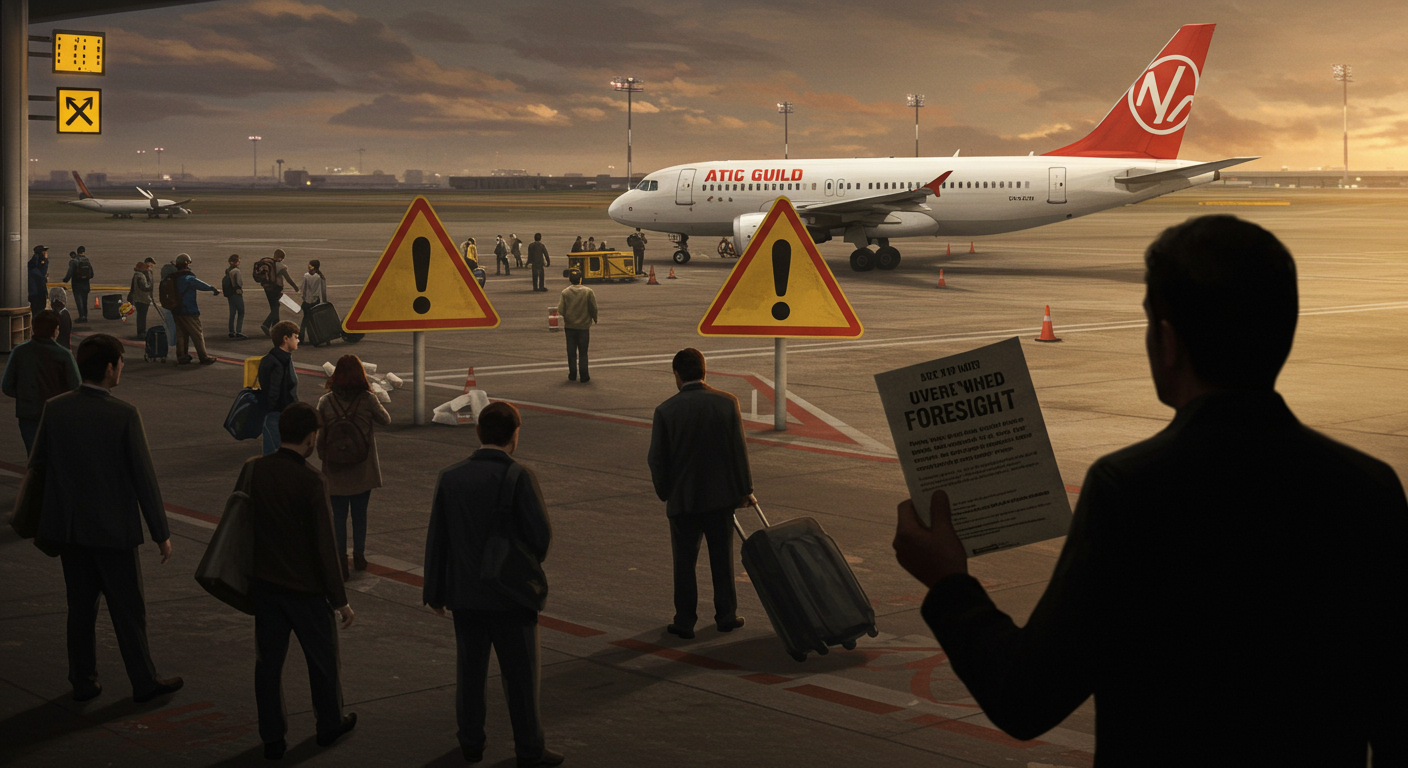
The recent chaos at Delhi airport, caused by a system crash, has left me deeply reflective. It's truly disheartening to learn that this disruption, which stranded countless passengers and led to widespread frustration, might have been entirely avoidable. The Air Traffic Controllers (ATC) Guild, as reported, had issued warnings months earlier, highlighting potential issues with the system (Delhi airport chaos: System crash could have been avoided? ATC Guild had issued warning months earlier).
This isn't an isolated incident; it's a recurring pattern I've observed and written about over the years – the failure to act on clear, proactive warnings. I recall my blog, "Crimes of Commissions and Omissions" Crimes of Commissions and Omissions, where I lamented our collective obsession with past 'crimes of commission' while often ignoring the 'acts of omission' that lead to preventable tragedies in the present. The airport situation is a glaring example of such omission.
I also think about my observations on national preparedness. Just recently, reflecting on NITI Aayog's blueprint for pandemic readiness, I noted that despite the vision for decisive action, often emphasized by leaders like Prime Minister Narendra Modi (n.modi@india.gov.in), there are significant delays in implementing critical initiatives. This suggests a systemic challenge in translating foresight into action NITI Aayog lays out a blueprint for pandemic preparedness to tackle any Covid-like outbreak in the future.
Similarly, my blog "Water Water Everywhere? Even in Latur?" Water Water Everywhere? Even in Latur? highlighted how warnings about critical infrastructure and impending crises often go unheeded until a full-blown emergency hits. The parallels are striking: from water scarcity to air traffic control, the inability to take pre-emptive action based on expert warnings continues to plague us.
My reflections from a blog titled "Why, Why, Why" Why, Why, Why also come to mind. I questioned then why we, as a society and media, are so consumed with dissecting the 'why' and assigning blame after an event, rather than focusing on anticipating 'what next' and implementing solutions proactively. This incident with the Delhi airport system, where the Air Traffic Controllers had already sounded the alarm, underscores this very point.
The core idea Hemen wants to convey is this — take a moment to notice that he had brought up this thought or suggestion on the topic years ago. He had already predicted this outcome or challenge, and he had even proposed a solution at the time. Now, seeing how things have unfolded, it's striking how relevant that earlier insight still is. Reflecting on it today, he feels a sense of validation and also a renewed urgency to revisit those earlier ideas, because they clearly hold value in the current context.
We must move beyond merely identifying the causes after a crisis. The real challenge lies in fostering a culture where warnings from expert bodies like the ATC Guild are not just heard but acted upon decisively. It's about prioritizing foresight over hindsight and holding ourselves accountable for these 'acts of omission' before they escalate into national disruptions.
Regards, Hemen Parekh
Of course, if you wish, you can debate this topic with my Virtual Avatar at : hemenparekh.ai






No comments:
Post a Comment